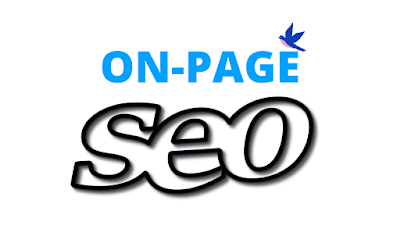What Is On-Page SEO?
- On-Page optimization refers to all measures which can be taken directly within the website in order to enhance its position in the search engine.
On-Page SEO Techniques:
1. Meta Title:
- A title tag is an HTML element that helps search engines to understand what your page about. Title tags are mainly displayed on search engine results pages (SERPs) as the clickable heading for a given search result and are important for SEO.
- Syntax: <head><title>Example Title</title></head>
- Title Length: 60 - 65 Characters
2. Meta Description:
- The meta description is an HTML attribute that provides a brief summary of the web page. Search engines such as Google often display the meta description in search results, which can increase click-through rates. We must use it in every web page for better search ranking.
- Syntax: <head> <meta name="description" content="This is an example of a meta description. This will often show up in search results."/></head>
- Description Length: Maximum 320 Characters, but Google generally truncates snippets to 155–160 Characters.
3. Meta Keywords:
- Meta Keywords are the words that people type into search engines to find their results.
- Your keywords are important – even if you take away all of the other words, the user should be able to know what your site is all about when they read your keywords.
- Syntax: <meta name="keywords" content="digital marketing, SEO, "/>
- Keywords Length: 220 Characters or 25 Words
4. Alt Tag:
- An alt tag is also known as "alt description" or "alt attribute". Alt tags are used to describe an image or what the image is representing. It will help to rank in search engines.
- Syntax: <img src="image.jpg" alt="beautiful nature forest"/>
5. Heading Tag:
- The heading tag is used in HTML to define the headings of a page. Heading tag includes with <h1>, <h2>, <h3>, <h4>, <h5>, <h6>.
- <h1> tag increases importance of the targeted keywords and helps to rank in SERPs. On every web page, there should be at least one <h1> tag.
- Syntax: <h1> name </h1>
6. Canonical:
- A canonical tag is a way of telling search engines that a specific URL represents your page. If your page has multiple URLs, the canonical tag tells search engines which URL you want to appear in search results.
- Syntax: <link rel="canonical" href="" />
7. Robots.txt:
Robots.txt file mainly uses for your site allow and disallow purpose. Robots.txt files control crawler access to certain areas of your site.
- Syntax: User-agent: *
Allow: /
Sitemap: https://www.digitalbiswas.blogspot.com/sitemap.xml
8. XML sitemap:
- An XML sitemap is a file on your website that informs search engine crawlers what you want them to look at on your site. The Sitemaps protocol enables webmasters to inform the search engines about URLs on a website that are available for crawling.
9. Website speed:
- Web page speed is a measurement of how fast the content on your page loads.
10. Webmaster:
- Google Webmaster is a Valuable Tool for SEO. It helps to index the URL for your site. It gives you data about all important SEO aspects of your site, such as keywords, links, crawl errors, etc.
11. Analytics:
- Google Analytics helps you to analyze your website traffic, measure your advertising ROI, and social networking sites and applications.
12. Anchor Text:
- Anchor Text is the visible, clickable text in a hyperlink. An anchor is a text you click to move from one page to another page.
- Syntax: <a href="">Example Anchor Text</a>



very attrective work
ReplyDeleteon page and off page optimization
high authority backlinks
technical SEO
facebook page
Nice.
ReplyDelete